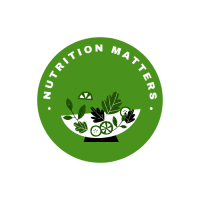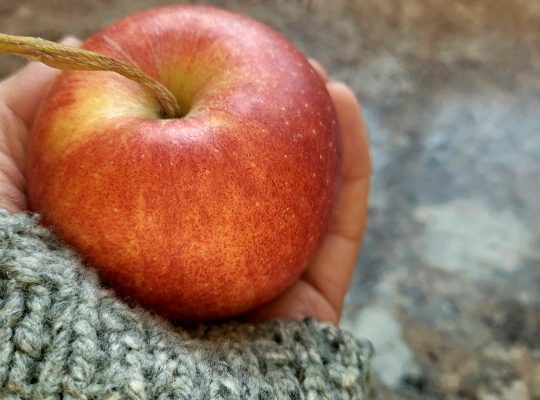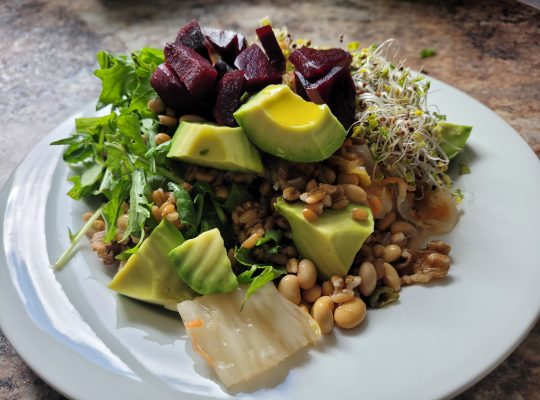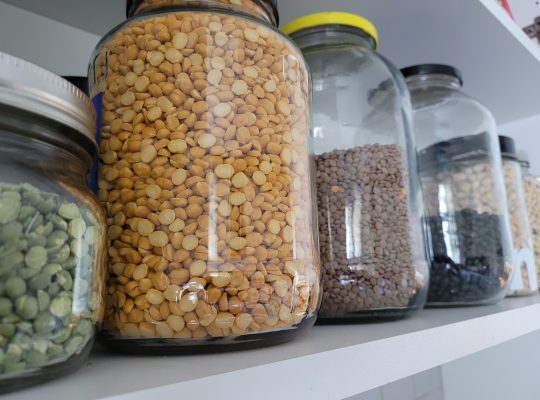Let’s talk about fat loss. I am not saying weight loss because it’s worth considering the specifics, such as working towards body recomposition rather than simply aiming to lose weight. Body recomposition refers to building muscle while disposing of some of the fat tissue, and this may or may not result in actual weight changes, or they can be minimal. Note: sometimes people need to start a weight loss program due to a health/medical risk, and that is a separate conversation altogether.
Something to consider…
The number on the scale is but one dimension, and there are many more to consider (stage of life, eating and movement patterns, stress levels, monthly fluctuations when a period is still present, or not). Therefore, weighing yourself daily may or may not be not a good idea. Here’s what I mean. If you are monitoring your food intake, fluids, exercise, etc. and weighing yourself daily (ideally around the same time so your body is in the same state regarding bathroom habits, hydration, and so on) but in the end look at the mean value, that can work. However, if you start obsessing about your daily weight and fall into dieting or you start avoiding certain foods just so you can see the number change, then it’s a terrible idea. Like I said, body weight fluctuation can be the result of many things: water retention (salt and sugar would do it), exercise, medication, stool weight – yes, really!, and so on).
It’s a mix of many things
Like everything else worthwhile that we do in life, finding the ‘zone’ where we maintain body weight and adopt a sustainable lifestyle (nutrition, exercise, etc.) takes a bit of time and effort. Some suggestions to consider if you want to improve body composition (increase muscle mass, decrease fat).
- Resistance exercise.
As we get older, we lose muscle tissue and replace some of it with fat tissue. One thing that can mitigate this complex (and frustrating) process is adding some resistance exercise and maintaining a regular aerobic routine. Also, being physically active can help regulate appetite and it can also influence our food choices for the better. Lifting some weights (bodyweight counts too) and going for brisk walks (ideally 8,000 steps or so). BUT, it has to be coupled with eating enough and adequately to help muscles recover and rebuild. Yes, I am asking you to eat enough while also suggesting that you should keep an eye on what/how you eat. Which takes me to…
- Keep a food journal (what/how much/when).
Most humans tend to underestimate their food intake. That’s not because we are malicious beings but because it’s easy to either forget that we just snacked on some (high calorie) foods. Also, what we consider a portion may be in fact two or three. Start here and be diligent about it. You will become more aware about food choices in general. This can also help you see which foods you can swap, if needed, or what to add to create balanced meals. And here’s the next one…
- Eat enough (amounts and nutrient-wise), especially if you exercise.
While eating a bit less or adopting a certain pattern for a limited amount of time (ideally with a professional to provide guidance and support) does give results, diets or fads are just a big NO (unless for specific medical reasons, such as remission of type 2 diabetes). They do not work in the long run (but they do in the first few weeks). In general, if you lose a lot of weight in a short amount of time, you’ll most likely gain it back (sometimes with interest too, because our bodies are like that…). What to do instead: eat satiating meals (high in fiber and protein, for example and legumes are a great example of both!) that will supply you with the nutrients you need, and your gut bacteria too, as they have a say in our food choices. Eat around the same time ideally, as that will help manage your appetite better and with that, the amount of food at each meal.
- Limit/skip the ‘usual suspects’:
- Alcohol (1 gram brings along 7 kcal, so the more you drink and the higher the alcohol content… the more calories that you pile over your regular fare).
- Beverages with added sugar: whether it’s soft drinks, fruit juice, hot chocolate, coffee with add-ons, the net result is more calories. In general, limit drinking your calories.
- Treats, whether savory or sweet. Okay, you’re at a party and there’s either chips or cake and it’s silly to think you’ll abstain. Life is about having fun, but that’s exactly the thing: have the occasional treat and enjoy it!
A couple of things that need to be said
Fats of any kind (saturated, polyunsaturated, monounsaturated) have more calories per gram than carbs and protein, so don’t overdo them. Going fat-free is not healthy as we need fats for a variety of biochemical processes, but go easy on them and limit the saturated (higher risk of cardiovascular disease).
Fruit is sweet due to a higher natural sugar content, but depending on the type, it also comes with fiber, polyphenols, vitamins and minerals, so please enjoy it.







